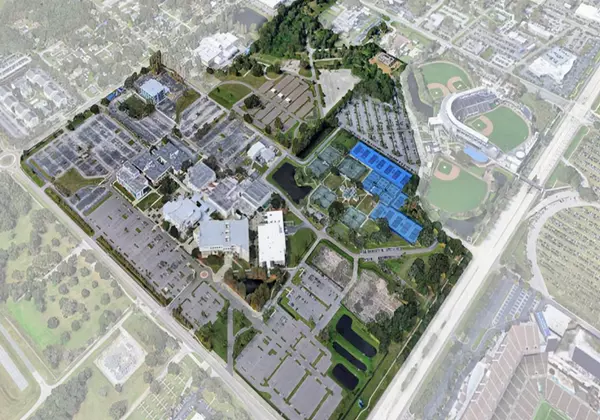BLOG OF THE DAY
 The future of a potential new home for the Tampa Bay Rays took a meaningful step forward this week when the Hillsborough College Board of Trustees unanimously approved a non-binding agreement to begin formal discussions with the team about redeveloping part of the college’s Dale Mabry campus. Th
The future of a potential new home for the Tampa Bay Rays took a meaningful step forward this week when the Hillsborough College Board of Trustees unanimously approved a non-binding agreement to begin formal discussions with the team about redeveloping part of the college’s Dale Mabry campus. Th Florida se ha consolidado como uno de los mercados más atractivos para invertir en bienes raíces en Estados Unidos, especialmente para quienes buscan estabilidad económica, seguridad jurídica y rentabilidad en dólares. Seguridad Jurídica y Transparencia El mercado inmobiliario estadounidense se
Florida se ha consolidado como uno de los mercados más atractivos para invertir en bienes raíces en Estados Unidos, especialmente para quienes buscan estabilidad económica, seguridad jurídica y rentabilidad en dólares. Seguridad Jurídica y Transparencia El mercado inmobiliario estadounidense se Santiago, Chile’s capital and largest city, has become one of the hot relocation and real estate destinations in South America for Americans, retirees, and international investors. With a stable economy, modern infrastructure, and a high quality of life, Santiago offers many of the conveniences
Santiago, Chile’s capital and largest city, has become one of the hot relocation and real estate destinations in South America for Americans, retirees, and international investors. With a stable economy, modern infrastructure, and a high quality of life, Santiago offers many of the conveniences As more Americans explore international retirement options, Chile is emerging as one of the best places to retire abroad. With its political stability, modern infrastructure, high-quality healthcare, and diverse climates, Chile offers retirees an attractive alternative to traditional retirement
As more Americans explore international retirement options, Chile is emerging as one of the best places to retire abroad. With its political stability, modern infrastructure, high-quality healthcare, and diverse climates, Chile offers retirees an attractive alternative to traditional retirement